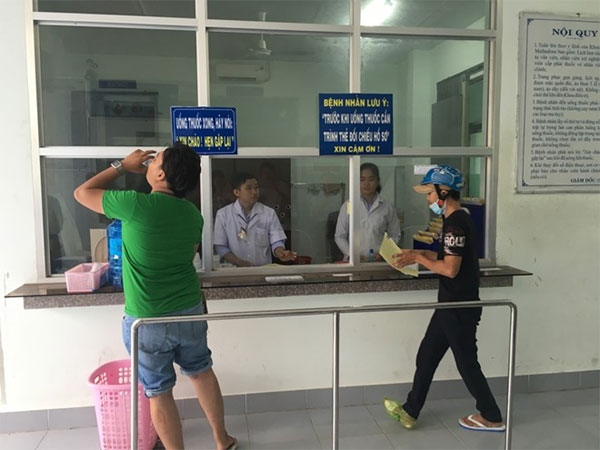VietNamNet Bridge – Viet Nam needs to sustain its strong political commitment and increase spending on HIV prevention and treatment to maintain its hard-gained achievements and to fast track its HIV response towards ending AIDS by 2030, according to UNAIDS country director Marie-Odile Emond.

Almost half of all HIV patients in Viet Nam get treatment allowing them to enjoy a longer and productive life and take care of their families. — Photo Thanh Hang
Almost half of all HIV patients in Viet Nam get treatment allowing them to enjoy a longer and productive life and take care of their families, she told a conference on policies for HIV/AIDS prevention held in HCM City yesterday.
“This means that more than half of people with HIV who very much need treatment do not get it.”
With still around 11,000 new HIV infections and 8,000 AIDS-related deaths every year, Viet Nam continues to face a major public health threat, she said.
“Though every new HIV infection is preventable, especially mother-to-child transmission, every year a few hundred Vietnamese infants are born with HIV.”
Young people’s knowledge of HIV remains limited, and thus the younger generation, whom Viet Nam’s future relies on, is still much at risk of HIV and progress could be reversed, she warned.
The HIV epidemic and response are uneven across the country and, evidence shows, have become more serious in certain areas and among some key populations, she said.
This complex dynamic requires continued determination and a well-adapted response, she said.
“Investing in the HIV response will not only ensure that no one is left behind and at risk without access to HIV information and services, but will also enable more people living with HIV to be part of the national solutions towards ending AIDS.”
Viet Nam would be able to end AIDS as a public health threat by 2030, she said.
“Though we will continue to support Viet Nam to mobilise external support, in the context of fast reduction of donor funding for HIV due to Viet Nam’s strong economic development and with a view to further ensure the sustainability of the HIV response, HIV should be integrated in the national and provincial socio-economic development plans.”
Nguyen Hoang Long, head of the Viet Nam Administration of HIV/AIDS Control, said in the first six months of this year 4,541 new HIV infections had been detected, raising the total number in the country to 209,591.
Of them, 56 per cent are getting the anti-retroviral (ARV) therapy, he said.
The total number of AIDS patients is 90,190.
Nine provinces and cities are yet to complete a project on allocating finance for HIV/AIDS prevention, he said.
It is expected that health insurance would cover ARV drugs from 2019, and the ratio of people with HIV/AIDS who have insurance increased from 64 per cent last February to 76 per cent in June, he said.
In 34 provinces more than 80 per cent have insurance, he added.
VNS